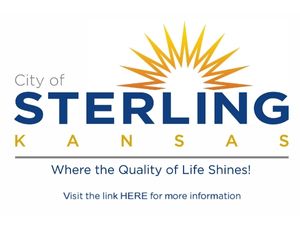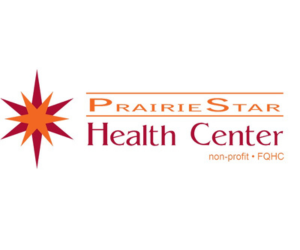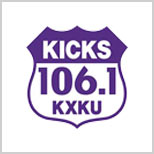WASHINGTON, D.C. (March 28, 2025) — Today, U.S. Representatives Tracey Mann (KS-01) and Joe Neguse (CO-02) led 11 of their colleagues in reintroducing legislation to address the nation’s health care workforce shortage. The States Handling Access to Reciprocity for Employment (SHARE) Act of 2025 would require the Federal Bureau of Investigations (FBI) to provide criminal record history information to state agencies conducting a background check for the purposes of an interstate compact. This technical amendment would improve the current licensing process for health care providers and increase the number of licensed providers able to serve communities across state lines.
“We need flexibility in our health care systems to ensure rural communities like those in the Big First have access to good, quality care,” said Rep. Mann. “As hospitals and care giving facilities across rural America navigate the challenges of recruiting and retaining health care providers, Congress should correct this technical error and remove processes that only make that challenge harder. Our bill expedites the licensure process for providers by allowing the FBI to share background checks across state lines and empower health care providers to serve rural communities where care is most needed without being handcuffed by where a state ends or begins. If we want to improve the health of those in the Big First, and in rural areas and communities around the country, we must expand employment opportunities for our rural health care providers.”
The SHARE Act would make a technical correction to modernize a vital component of the licensure process for health care providers by:
- Removing red tape and reducing administrative burden: This legislation authorizes the FBI to share criminal history record information between states for licensure purposes.
- Maintaining states’ rights to determine provider eligibility: This legislation allows cooperation between states while protecting each state’s authority to determine whether a provider is eligible to practice in the state.
- Addressing the workforce shortage: This legislation extends the reach of health care professionals, eliminating the time necessary for state-to-state checks, improving access to medical specialists, and leveraging the use of new medical technologies like telehealth.
Joining Reps. Mann and Neguse in introducing the SHARE Act are Reps. Don Davis (NC-01), Doug LaMalfa (CA-01), Dan Crenshaw (TX-02), Dan Meuser (PA-09), Sam Graves (MO-06), Eleanor Holmes Norton (DC-AL), Lauren Boebert (CO-04), Michael McCaul (TX-10), Stephanie Bice (OK-05), Tony Wied (WI-08), and Derek Schmidt (KS-02).
The SHARE Act is supported by the Academy of Nutrition and Dietetics, The Accreditation Review Commission on Education for the Physician Assistant, Inc. (ARC-PA), ACPE: The Standard for Spiritual Care & Education, Alliance for Connected Care, American Academy of Audiology, American Academy of Physician Associates, American Association of Nurse Anesthesiology, American Association for Respiratory Care, American Counseling Association, American Dental Association, American Healthcare Association, American Medical Association (AMA), American Occupational Therapy Association, American Physical Therapy Association (APTA), APTA Tennessee, American Psychological Association, American Speech-Language-Hearing Association, American Telemedicine Association & ATA Action, Ascension, Association of Community Mental Health Centers of Kansas, Association of Dental Support Organizations, Association of Social Work Boards, Avera Health, Bellin+Gunderson Health System, BJC HealthCare, Bon Secours Mercy Health, Commission on Accreditation for Respiratory Care, Council of State Governments, Counseling Compact Commission, EMS Compact Commission, Essentia Health, Federation of Podiatric Medical Boards, Federation of State Medical Boards, Federation of State Boards of Physical Therapy, Healthcare Leadership Council, Interstate Commission for EMS Personnel Practice, Interstate Commission of Nurse Licensure Compact Administrators, Interstate Healthcare Collaborative, Interstate Medical Licensure Compact Commission, Kansas Association of Nurse Anesthetists, Kansas Psychological Association, Marshfield Clinic Health System, Mercy, National Academies of Practice (NAP), National Association of School Psychologists, National Board for Certification in Occupational Therapy, National Center for Assisted Living (AHCA/NCAL), National Commission on Certification of Physician Assistants, National Council of State Boards of Nursing, National Rural Health Association, Occupational Therapy Compact Commission, Physical Therapy Compact Commission, Psychology Interjurisdictional Compact Commission, Pyramid Healthcare, Rural Wisconsin Health Cooperative, Sanford Health, School Social Work Association of America, SSM Health, Talkiatry, Trinity Health, University of Pittsburgh Medical Center, UnityPoint Health, Vermont Board of Medical Practice, and Wyoming Medical Society.
“The EMS Compact strongly supports the SHARE Act as a critical measure to enhance public safety and strengthen the EMS workforce,” said Donnie Woodyard, MAML, NRP, Executive Director of the United States EMS Compact. “It is essential for public protection that state licensing officials have the ability to review criminal history records for all applicants. This fundamental safeguard ensures that only qualified and vetted EMS clinicians are entrusted with patient care, reinforcing the integrity and reliability of our nation’s emergency medical services.”
“The National Council of State Boards of Nursing (NCSBN) stands in strong support of the SHARE Act and looks forward to the 119th Congress’s consideration of this important legislation,” said Phil Dickison, PhD, RN, Chief Executive Officer of NCSBN. “The SHARE Act represents a critical step forward in facilitating greater access to care for patients across the country. The legislation will ensure state boards of nursing can vet applicants for multistate licensure to promote safe cross-border practice.”
“The Occupational Therapy Compact Commission (OTCC) supports the SHARE Act because it is a crucial step toward ensuring public safety across states that participate in interstate occupational compacts,” said Amanda Perry, OTCC Executive Director. “This act fosters a more secure and trustworthy collaboration while strengthening the integrity of professional licensing, promoting accountability, and protecting citizens from potential harm. For the purposes of making informed licensing decisions, state licensing authorities should be afforded timely and relevant information regarding potential licensees’ criminal history that would affect safe practices within professions.”
“APTA-Tennessee endorses the SHARE Act, and we hope the 119th Congress will approve this bipartisan legislation,” said Sarah Suddarth, APTA Tennessee President. “The SHARE Act will provide Tennesseans in medically underserved areas with greater access to physical therapy care by ensuring that PTs and other healthcare providers are quickly enabled to treat patients in multiple states.”
“The Council of State Governments has worked to develop professional licensure compacts in coordination with numerous state, federal, and professional partners,” said Dan Logsdon, Director, National Center for Interstate Compacts. “These combined efforts have contributed to states gaining greater access to qualified professionals across the nation and the essential services they provide. 52 states and territories have enacted at least one of these compacts with each state enacting at least 6, on average. CSG recognizes the importance of passage of the SHARE Act to ensure states can fully operationalize the licensure compacts they have enacted. The states clearly realize the need for improved licensure portability and increasing their healthcare workforce and as a result recognize the importance of the SHARE Act. CSG stands in support of the SHARE Act and the efforts across the nation to ensure its successful passage by Congress.”
“The American Occupational Therapy Association (AOTA) strongly supports the SHARE Act,” said Katie Jordan, CEO of the American Occupational Therapy Association. “Occupational therapy practitioners are vital to helping individuals live independent, meaningful lives. The SHARE Act will allow practitioners to bring their expertise where it is needed most, ensuring timely access to care for patients and families. We applaud this legislation as a step toward a more flexible and modern healthcare system.”
“The American Academy of Physician Associates strongly supports the SHARE Act,” said AAPA CEO Lisa M. Gables, CPA. “By removing the red tape and administrative burdens on licensure compacts, this legislation will promote workforce development and strengthen the labor market. It will also improve consumer access to highly qualified practitioners and leverage the use of new medical technologies, such as telehealth. The SHARE act would have a major impact on increasing access to healthcare while allowing states to protect their authority to determine who is eligible to practice in the state.”
“The Interstate Commission of Nurse Licensure Compact Administrators (ICNLCA) encourages enactment of the SHARE Act,” said Pam Zickafoose, EdD, MSN, RN, Chair of ICNLCA. “The Nurse Licensure Compact (NLC) enables nurses in compact states to hold a multistate license which authorizes practice in 43 jurisdictions currently. This model of licensure makes it possible for nurses to assist in other jurisdictions without any impediments or delays. Federal criminal background checks are the gold standard for public protection in occupational licensure and are a requirement for a nurse to obtain a multistate license. The SHARE Act will enable states to continue to implement and advance the NLC, therefore bringing vital nursing services to patients in need.”
“The Interstate Medical Licensure Compact Commission (IMLCC) strongly supports the SHARE Act. The Act is needed so that the FBI will have clear guidance about how the information provided enhances public safety, while supporting the public protection mission of the IMLCC member boards. Our member boards depend on reliable access to the criminal background information, which at times in the past and currently for 4 of our member boards, that access has been denied. Our member boards have been maintaining and protecting the information they receive for over 7 years.”
“The American Speech-Language-Hearing Association thanks Representatives Mann and Neguse for reintroducing the SHARE Act, and Senators Blackburn and Welch for introducing companion legislation in the Senate for the first time,” said 2025 ASHA President Bernadette Mayfield-Clarke, PhD, CCC-SLP. “ASHA strongly supports the implementation of the Audiology & Speech-Language Pathology Interstate Compact (ASLP-IC), which is currently adopted by 34 states and 1 territory to allow licensed audiologists and speech-language pathologists to obtain a privilege to practice across state lines in other ASLP-IC member states. As the ASLP-IC anticipates beginning to issue compact privileges to practice later this year, the SHARE Act is vital to ensuring that participating states can receive important information such as background check status and results so practice privileges can be issued. This will help increase access to care in underserved or geographically isolated populations through telepractice, as well as facilitate continuity of care when clients, patients, and/or students relocate or travel to another compact state. ASHA looks forward to working with the sponsors to pass the SHARE Act.”

























































